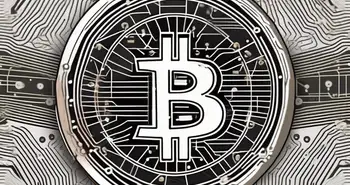Complicated Aspects of Bitcoin Game Theory

In the world of cryptocurrency, Bitcoin has emerged as a game-changer. Its decentralized nature and unique incentive system have given rise to a complex web of interactions, governed by game theory principles. As an expert in this field, I aim to shed light on the intricacies of Bitcoin game theory and how it shapes the future of our financial landscape.
The Concept of Game Theory
Game theory, in its essence, is the study of strategic decision-making. It analyzes the behavior of rational individuals when they interact with others in various scenarios. By understanding the motivations, incentives, and potential outcomes, game theory provides valuable insights into economic and social phenomena.
Defining Game Theory
Game theory is a mathematical framework that examines the strategic interactions between multiple decision-makers, known as players. These players are rational actors who aim to maximize their own utility. The outcomes of these interactions depend on the choices made by each player, leading to different equilibrium states.
Game Theory in Economics and Social Sciences
Game theory has wide-ranging applications in economics and social sciences. It helps predict human behavior in various scenarios, such as auctions, bargaining, and market competition. By uncovering the strategies and rationality behind these interactions, game theory provides valuable insights for policymakers and researchers.
Let's delve deeper into the applications of game theory in economics. One fascinating area where game theory has been extensively used is in analyzing oligopolistic markets. In an oligopoly, a small number of firms dominate the market, and their strategic decisions can have a significant impact on prices, output, and overall market dynamics. Game theory allows economists to model the behavior of these firms and predict how they will interact with each other.
For example, consider a duopoly where two firms are competing against each other. Game theory can help determine the optimal pricing and production strategies for each firm. The firms must carefully consider their rival's potential reactions to their own actions. By using game theory models, economists can analyze different scenarios and identify the equilibrium outcomes, such as the Nash equilibrium, where neither firm has an incentive to deviate from their chosen strategy.
Another intriguing application of game theory is in the field of international relations. Countries often find themselves in situations where their decisions depend on the actions of other nations. Game theory provides a framework to analyze these interactions and understand the strategic choices made by countries.
Take, for instance, the concept of the Prisoner's Dilemma, a classic game theory scenario. In this scenario, two individuals are arrested for a crime and are given the option to cooperate with each other or betray one another. The outcome of their decision depends on the choices made by both individuals. This concept can be applied to international relations, where countries face similar dilemmas when deciding whether to cooperate or pursue their own interests.
By applying game theory to international relations, policymakers can gain insights into the dynamics of conflicts, negotiations, and alliances. They can analyze the strategic behavior of countries and predict the potential outcomes of different scenarios, helping them make informed decisions that align with their national interests.
The Intersection of Bitcoin and Game Theory
Bitcoin, as a decentralized digital currency, operates on the principles of game theory. Its innovative design incentivizes participants to act in a way that benefits the entire network. Let's explore the key elements that make Bitcoin an intriguing case study for game theory analysis.
Bitcoin's Decentralized Nature
Unlike traditional financial systems that rely on central authorities, Bitcoin operates on a peer-to-peer network. This decentralized structure empowers individuals and removes intermediaries, making it resistant to censorship and enabling secure transactions across borders. Game theory plays a crucial role in maintaining the integrity of the Bitcoin network.
The Role of Miners in Bitcoin Game Theory
Miners are fundamental actors in the Bitcoin ecosystem. Their role is to validate transactions, solve complex mathematical puzzles, and add new blocks to the blockchain. In return for their efforts, miners are rewarded with newly minted Bitcoins and transaction fees. Game theory helps us understand miners' incentives and how they contribute to the stability of the network.
Incentives and Disincentives in Bitcoin Game Theory
In the world of Bitcoin, incentives and disincentives play a vital role in shaping participants' behavior. Understanding these motivations is critical to comprehending the dynamics of Bitcoin game theory.
Reward System in Bitcoin Mining
Bitcoin's reward system provides a powerful incentive for miners to contribute their computational power to secure the network. By solving complex cryptographic puzzles, miners have a chance to earn Bitcoins. The competition among miners not only ensures the security and integrity of the network but also aligns their interests with the ecosystem as a whole.
Risks and Challenges in Bitcoin Mining
While the rewards of Bitcoin mining are attractive, it comes with its fair share of risks and challenges. As more miners join the network, competition increases, making it harder to solve puzzles and earn rewards. Additionally, there are costs associated with mining, such as electricity and equipment expenses. Game theory helps us understand how miners navigate these challenges and make strategic decisions to maximize their profits.
Strategic Interactions in Bitcoin Ecosystem
The Bitcoin ecosystem is a complex web of interactions between different stakeholders, including miners, users, and developers. These interactions are driven by rational decision-making and strategic considerations.
Interactions between Miners
Miners compete with each other to add new blocks to the blockchain. This competition is not just about computational power, but also about timing. Miners strategically choose when to release their solved block to maximize their chances of receiving rewards. Game theory helps us understand the interplay between miners and how it influences the security and efficiency of the Bitcoin network.
Interactions between Miners and Users
Users play a crucial role in the Bitcoin ecosystem. They send and receive transactions, contributing to the overall liquidity and value of the network. Miners rely on the transaction fees associated with these transactions as an additional source of income. Understanding the strategic interactions between miners and users helps us analyze the trends and future trajectory of Bitcoin.
Implications of Bitcoin Game Theory
Bitcoin game theory has profound implications for the security, trust, and future development of the network. Let's delve into some of the key implications that arise from the intersection of Bitcoin and game theory.
Security and Trust in Bitcoin Network
Bitcoin's security relies on the honesty and rational behavior of the majority of the network participants. Game theory helps us understand how incentives and disincentives shape the participants' behavior, enabling us to assess the network's vulnerability to attacks. The decentralized nature of Bitcoin, coupled with game theory principles, contributes to its robustness and resilience.
Future of Bitcoin: Predictions Based on Game Theory
Game theory provides valuable insights into the potential future scenarios for Bitcoin. By understanding the incentives and interactions of the network participants, we can make informed predictions about the adoption, scalability, and value of Bitcoin. While game theory does not offer certainty, it equips us with the tools to analyze potential outcomes and strategize accordingly.
As an expert in Bitcoin game theory, I have witnessed firsthand the transformative power of this technology. I remember a time when Bitcoin was dismissed as a mere curiosity. However, the principles of game theory have revealed its true potential and brought it to the forefront of the financial industry.
My personal advice to those seeking to understand Bitcoin game theory is to dive deep into the intricacies of this field. Explore the mathematical models, analyze real-world data, and engage in discussions with experts to gain a comprehensive understanding of this fascinating subject. As technology continues to evolve, game theory will remain a crucial tool in deciphering the dynamics of emerging systems like Bitcoin.
Frequently Asked Questions
What is game theory?
Game theory is a mathematical framework that studies strategic decision-making and the interactions between rational individuals in various scenarios. It provides insights into economic and social phenomena, helping predict human behavior and rational strategies.
How does Bitcoin intersect with game theory?
Bitcoin operates on the principles of game theory through its decentralized nature and unique incentive system. Bitcoin miners participate in a strategic competition, driven by incentives, to validate transactions and secure the network. Game theory analysis helps us understand their behavior and predict the outcomes of these interactions.
What are the implications of Bitcoin game theory?
Bitcoin game theory has implications for the security, trust, and future development of the network. Understanding the incentives and interactions of network participants helps us assess the network's vulnerability to attacks and make predictions about its adoption, scalability, and value.
How can I gain expertise in Bitcoin game theory?
To gain expertise in Bitcoin game theory, it is essential to study the mathematical models, analyze real-world data, and engage in discussions with experts in the field. Staying updated with the latest research and developments will provide a comprehensive understanding of this dynamic subject.
With a deep understanding of Bitcoin game theory, we can navigate the intricate world of cryptocurrency and leverage its potential for positive change. By exploring the strategic interactions, incentives, and potentials of this revolutionary technology, we pave the way for a future that redefines finance, trust, and human cooperation.
Ready to apply your understanding of Bitcoin game theory to the real world of trading? Look no further than Morpher, the revolutionary platform that's changing the game for investors everywhere. With Morpher, you can trade Bitcoin and a multitude of other assets with zero fees, infinite liquidity, and up to 10x leverage. Whether you're interested in cryptocurrencies, stocks, forex, or even niche markets like NFTs, Morpher offers a unique, blockchain-based trading experience that's as innovative as it is user-centric. Embrace the future of investing with fractional shares, short selling, and the safety of a non-custodial wallet. Sign Up and Get Your Free Sign Up Bonus today, and start leveraging your game theory insights on a platform designed for the modern trader.

Disclaimer: All investments involve risk, and the past performance of a security, industry, sector, market, financial product, trading strategy, or individual’s trading does not guarantee future results or returns. Investors are fully responsible for any investment decisions they make. Such decisions should be based solely on an evaluation of their financial circumstances, investment objectives, risk tolerance, and liquidity needs. This post does not constitute investment advice.

Painless trading for everyone
Hundreds of markets all in one place - Apple, Bitcoin, Gold, Watches, NFTs, Sneakers and so much more.

Painless trading for everyone
Hundreds of markets all in one place - Apple, Bitcoin, Gold, Watches, NFTs, Sneakers and so much more.









